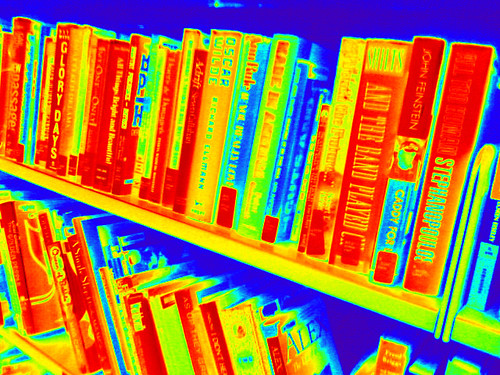
Below you will find the opening paragraph or paragraphs to six classic books. Can you identify them?
Wait, we'll make it easier for you.
After the six excerpts, there are eight possible books that the six can be from.
Can you match them up?
1) They say when trouble comes close ranks, and so the white people did. But we were not in their ranks. The Jamaican ladies had never approved of my mother, 'because she pretty like pretty self' Christophine said.
She was my father's second wife, far too young for him they thought, and, worse still a Martinique girl. When I asked her why so few people came to see us, she told me that the road from Spanish Town to Coulibri Estate where we lived was very bad and that road repairing was now a thing of the past. (My father, visitors, horses, feeling safe in bed -- all belonged to the past.)
2) The Lie Detector was asleep when he heard the telephone ringing.
At first he believed it was the clock ordering him to rise, but then he awakened completely and remembered his profession.
The voice he heard was rusty, as if disguised. He could not distinguish what altered it: alcohol, drugs, anxiety or fear.
3) On the pleasant shore of the French Riviera, about half way between Marseilles and the Italian border, stands a large, proud, rose-colored hotel. Deferential palms cool its flushed faced, and before it stretches a short dazzling beach. Lately it has become a summer resort of notable and fashionable people; a decade ago it was almost deserted after its English clientele went north in April. Now, many bungalows cluster near it, but when this story begins only the cupolas of a dozen old villas rotted like water lilies among the massed pines between Gausse's Hotel des Etrangers and Cannes, five miles away.
4) I have never begun a novel with more misgiving. If I call it a novel it is only because I don't know what else to call it. I have little story to tell and I end neither with a death nor a marriage. Death ends all things and so is the comprehensive conclusion of a story, but marriage finishes it very properly too ad the sophisticated are ill-advised to sneer at what is by convention termed a happy ending. It is a sound instinct of the common people which persuades them that with this all that needs to be said is said. When male and female, after whatever vicissitudes you like, are at last brought together they have fulfilled their biological function and interest passes to the generation that is to come. But I leave my reader in the air. This book consists of my recollections of a man with whom I was thrown into close contact only at long intervals, and I have little knowledge of what happened to him in between. I suppose that by the exercise of invention I could fill the gaps plausibly enough and so make my narrative more coherent; but I have no wish to do that. I only want to set down what I know of my own knowledge.
5) I did not realize for a long time that I was dead.
And that reminds me of a story: There was once a beautiful young panther who had a co-wife and a husband. Her name was Lara and she was unhappy because her husband and her co-wife were really in love; being nice to her was merely a duty panther society imposed on them. They had not even wanted to take her into their marriage as co-wife, since they were already perfectly happy. But she was an "extra" female in the group and that would not do. Her husband sometimes sniffed her breath and other emanations. He even, sometimes, made love to her. But whenever this happened, the co-wife, whose name was Lala, became upset. She and the husband, Baba, would argue, then fight, snarling and biting and whipping at each other's eyes with their tails. Pretty soon they'd become sick of this and would lie clutched in each other's paws, weeping.
6) When the fair gold morning of April stirred Mary Hawley awake, she turned over to her husband and saw him, little fingers pulling a frog mouth at her.
"You're silly," she said. "Ethan, you've got your comical genius."
"Oh say, Miss Mousie, will you marry me?"
"Did you wake up silly?"
"The year's at the day. The day's at the morn."
"I guess you did. Do you remember it's Good Friday?"
He said hollowly, "The dirt Romans are forming up for Calvary."
"Don't be sacrilegious. Will Marullo let you close the stores at eleven?"
A) W. Somerset Maugham's THE RAZOR'S EDGE.
B) F. Scott Fitzgerald's TENDER IS THE NIGHT.
C) Alice Walker's POSSESSING THE SECRET OF JOY.
D) John Steinbeck's THE WINTER OF OUR DISCONTENT.
E) Jean Rhys' WIDE SARGASSO SEA.
F) Katharine Anne Porter's SHIP OF FOOLS.
G) Anais Nin's A SPY IN THE HOUSE OF LOVE.
H) Toni Morrison's BELOVED.
Success? You've identified all six? Well call your parents and tell them that you finally were able to put that liberal arts degree to good use!
As for those of you that didn't identify all of them or are not sure you identified them correctly, below is the key.
1) is E.
2) is G.
3) is B.
4) is A.
5) is C.
6) is D.
